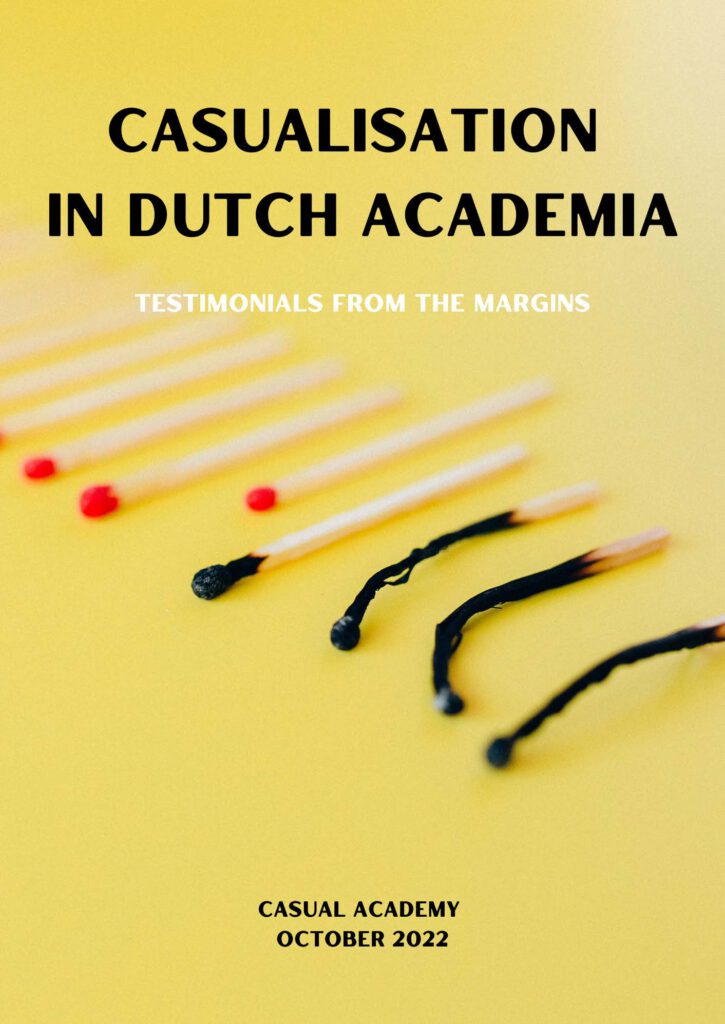Today the report on Casualisation in Dutch Academia has been launched. It outlines the poor working conditions and unacceptable burden placed on university employees on temporary contracts. Precarious contracts are a great cause for anxiety and therefore affect employees’ stress, health and well-being. As such, precarity affects their private lives and their professional development. Precarious employment also makes staff particularly vulnerable to harassment, power abuse, discrimination and exploitation. Furthermore, the employment practice of flexible contracts is detrimental to the quality of education offered at universities and therefore has a damaging effect on the higher education sector and knowledge production at large.
While it is widely acknowledged that casualisation has a deleterious impact on the quality of higher education, the personal toll of precarious contracts is often overlooked. This is partly because those who are directly affected by casualisation are often unable to share their stories – either because they are worried about future employment possibilities, or quite simply because they are forced out of academia. The aim of this report is to tell these untold stories by sharing and amplifying the voices of those who are directly affected by precarious working conditions. With the testimonials presented here in anonymized form, we hope to create awareness for how casualisation affects individuals, their careers, and their professional development. You can read the report here.
